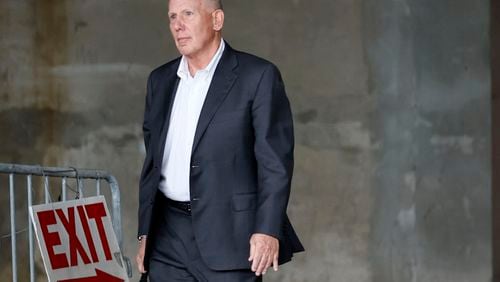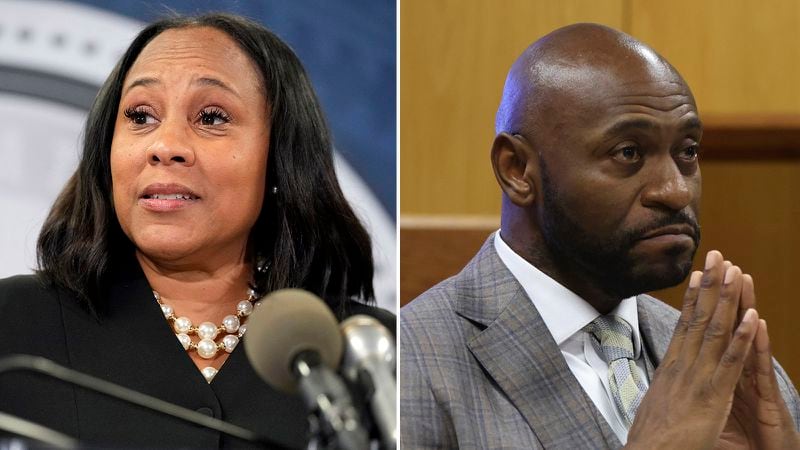Lawyers for former President Donald Trump on Monday asked the Georgia Court of Appeals to hear oral arguments on the challenge to disqualify District Attorney Fani Willis from Fulton County’s election interference case.
“We believe oral argument will assist the court by highlighting and clarifying the reasons why the case should be dismissed and (Willis) should be disqualified for her misconduct,” Trump’s lead attorney, Steve Sadow, said in a statement.
If granted, arguments would also draw fresh attention to Willis’ conduct in the weeks before the election. Both Trump and Willis are on the ballot in November.
The appeals court, which live-streams its oral arguments, decides most cases based solely on lawyers’ written legal briefs, according to statistics provided by the court. In the years since 2019, the court has only granted requests for oral arguments 32 percent to 41 percent of the time. Those outcomes do not include the many cases in which attorneys do not request oral arguments to be heard.
In the Trump racketeering conspiracy case, nine of the remaining 15 defendants are appealing an order by Superior Court Judge Scott McAfee. The judge found that while Willis’ romantic relationship with former special prosecutor Nathan Wade did not create a disqualifying conflict of interest, it was an appearance of a conflict that required her to make a choice.
In his March 15 decision, McAfee told Willis she could either recuse herself and her office from the case or Wade must go. Later that same day, Wade tendered his resignation. McAfee also found that Willis’ injection of race during a speech at Big Bethel AME Church on Martin Luther King Jr. weekend was “legally improper.”
In Monday’s filing, Trump’s lawyers said the appeal presents a novel issue the court has not yet decided — the legal standard judges must use when considering claims that a DA should be disqualified for forensic misconduct, such as making improper, prejudicial comments. That would apply, Trump’s motion said, to Willis’ church speech when she asked God why an attorney for defendant Mike Roman challenged the DA’s hiring of Wade, who is a Black man, but not the two other special prosecutors, John Floyd and Anna Cross, who are white.
Credit: AP
Credit: AP
Wade’s removal from the case “did nothing to cure nor mitigate the harm to the defendants from DA Willis’ extrajudicial speech,” said the motion, filed by Sadow, Jennifer Little and Kyle Winchester, a new member of the former president’s legal team. " ... This error could cause an upheaval of not one, but multiple, costly jury trials if not accurately redressed beforehand.”
Oral arguments for the appeal are warranted because the public’s faith in the integrity of the justice system is critical, the motion added. “Nowhere are these interests more important or on display than in a high-profile case that involves a former president of the United States, who is the presumptive Republican nominee in the ongoing presidential election, and whose prosecution in Fulton County, Georgia, has captured the attention of our great nation.”
When the appeals court said it would hear the disqualification challenge, it initially set an Oct. 4 date for oral arguments if they were to be granted. But the court has since said a scheduling conflict would require that date to be changed, if necessary. The three judges assigned to hear the appeal are Trenton Brown, Benjamin Land and Todd Markle.











